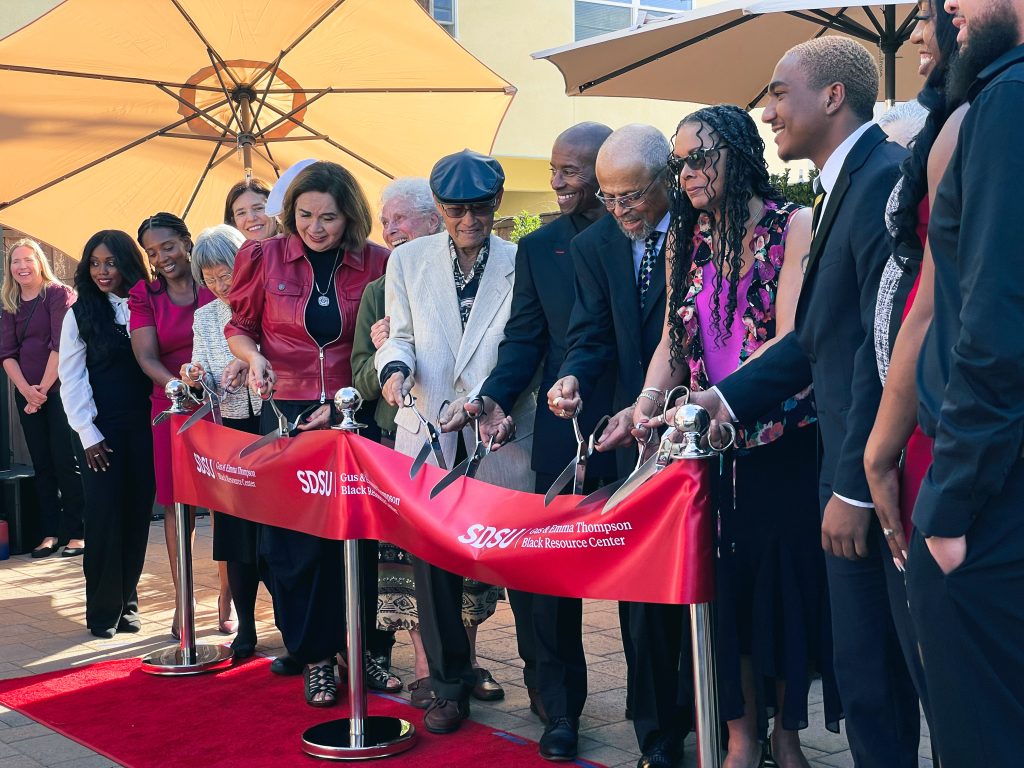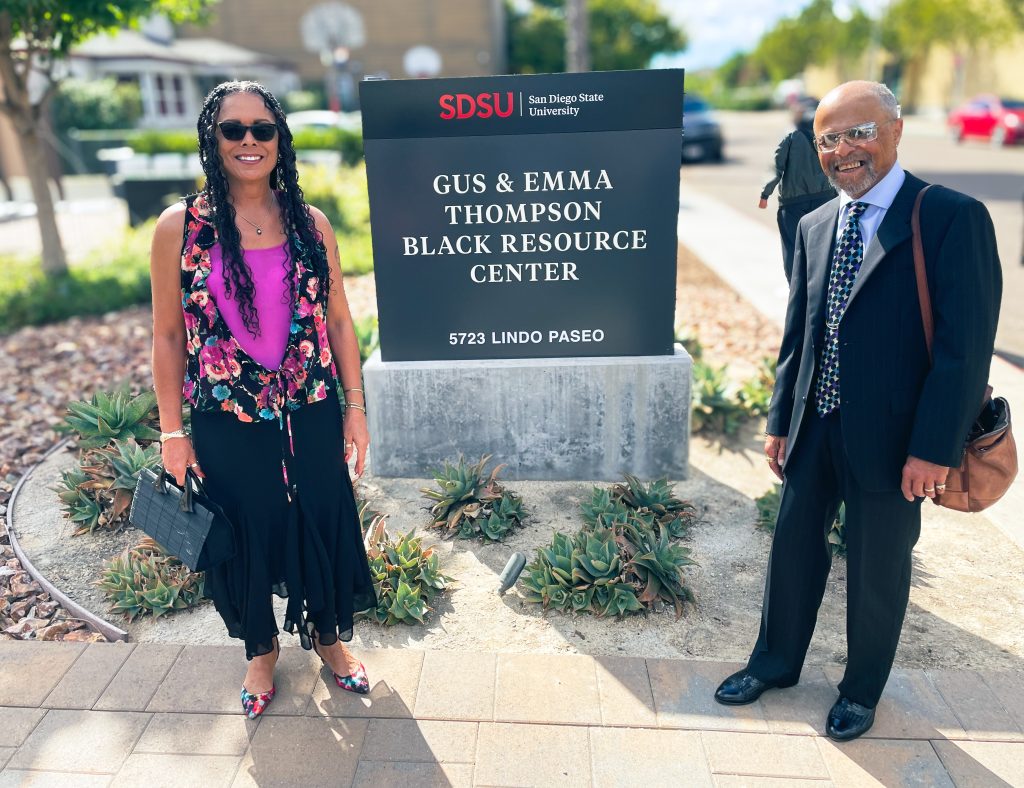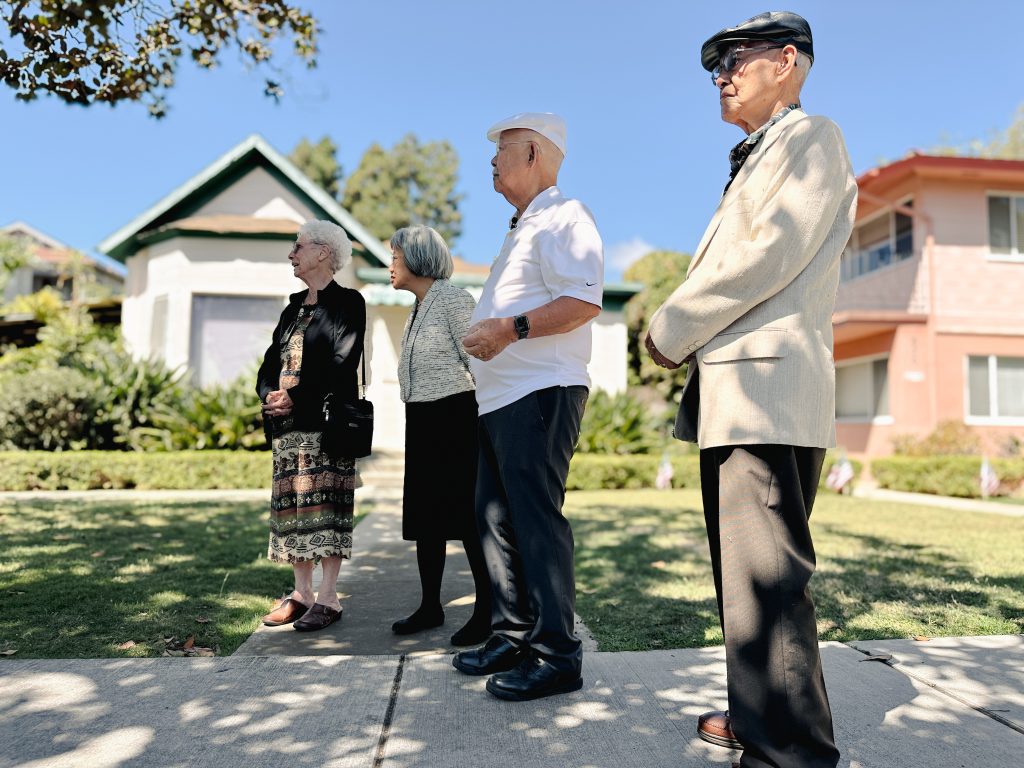
Do something nice for somebody else without expecting anything in return.
That’s the advice of Ballinger Kemp, the great-grandson of Gus and Emma Thompson, one of Coronado’s founding Black families, who rented and sold their home to Chinese immigrants when no one else would. On Monday, the legacy of kindness came full circle when the Dongs donated their portion of the proceeds of the sale of the Coronado property to the San Diego State University Black Resource Center.
It’s a $5 million donation, and it’s the biggest one the center has ever received.
At the request of the Dong Family, the center was renamed the Gus and Emma Thompson Black Resource Center, in their honor.
“The Thompsons gave my parents the ability to make the American Dream,” said Lloyd Dong Jr. at a gathering at the home on C Avenue before the ribbon-cutting ceremony. “They gave us a safe place to live, to raise a family.”
And now the Dong family has paid it forward. With the $5 million donation, the Gus and Emma Thompson Black Resource Center will expand academic programs, upgrade mental health supports, provide additional mentors and upgrade facilities, according to a press release from SDSU.
It all started in 1938 when the Dongs thought there was “no way” they could have rented a home in Coronado. As Chinese-Americans, Lloyd and Margaret Dong faced race-related challenges and restrictions when it came to making a home in the United States, including the Chinese Exclusion Act.
But the Thompsons, one of Coronado’s first Black families, already owned a house and horse stables on C Avenue. Gus Thompson, who had been formerly enslaved in Kentucky, and his wife Emma were both successful entrepreneurs and two of Coronado’s most important Black pioneers. The Thompsons bought their property in 1899, before racial restrictions and covenants barred non-white buyers from purchasing a home.
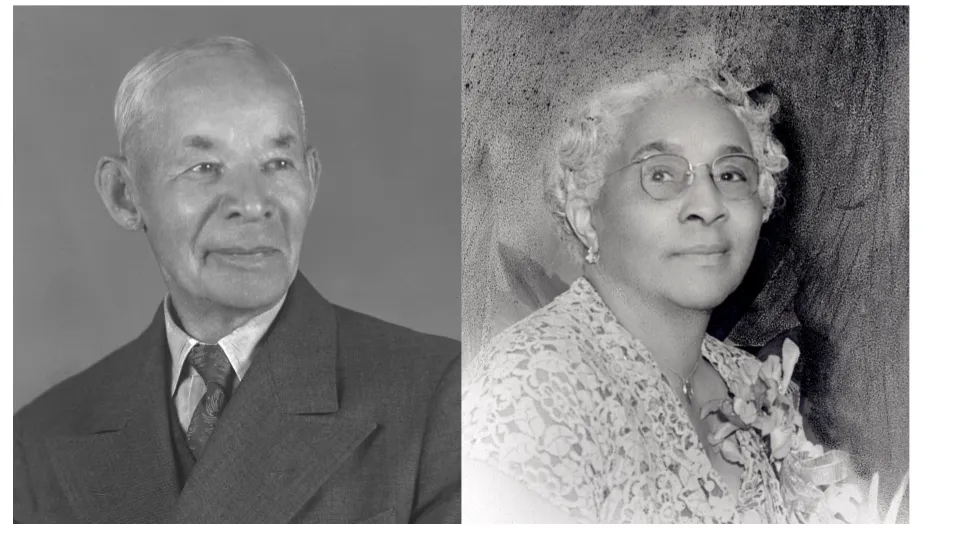
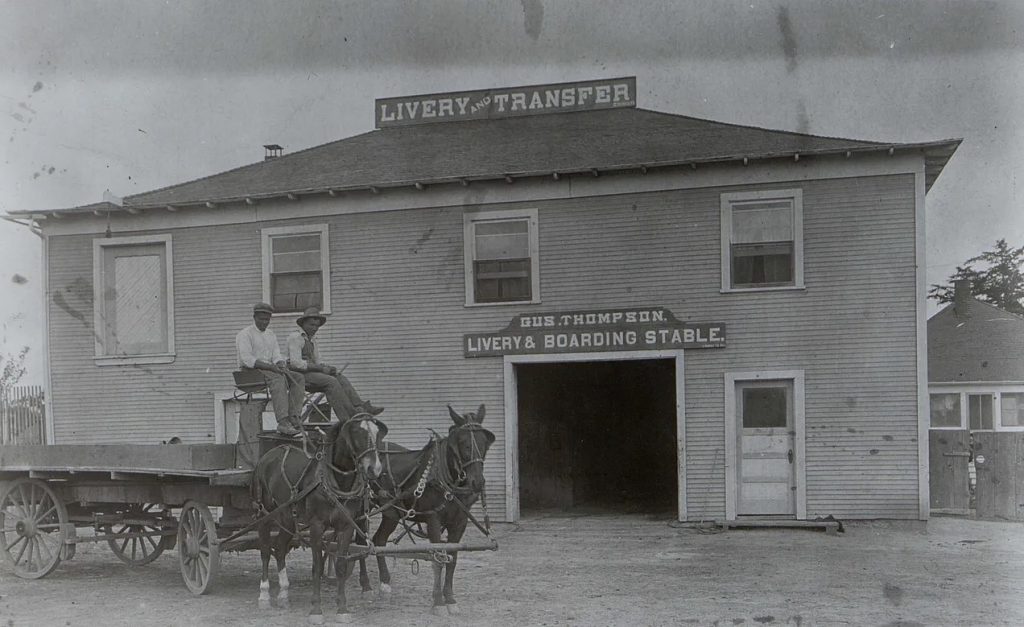
The Thompsons rented, and later sold, their home to Lloyd and Margaret Dong.
For the Dongs, it was nothing less than life-changing.
“Because we grew up in Coronado, and got our education here, we have become financially able to donate this money to the center, and we are happy to do that,” Lloyd Dong, Jr. said earlier this year. “What’s important here is what was given to us, to our family, and the education that came from it, and now is the time to give it back,” said Ron Dong.
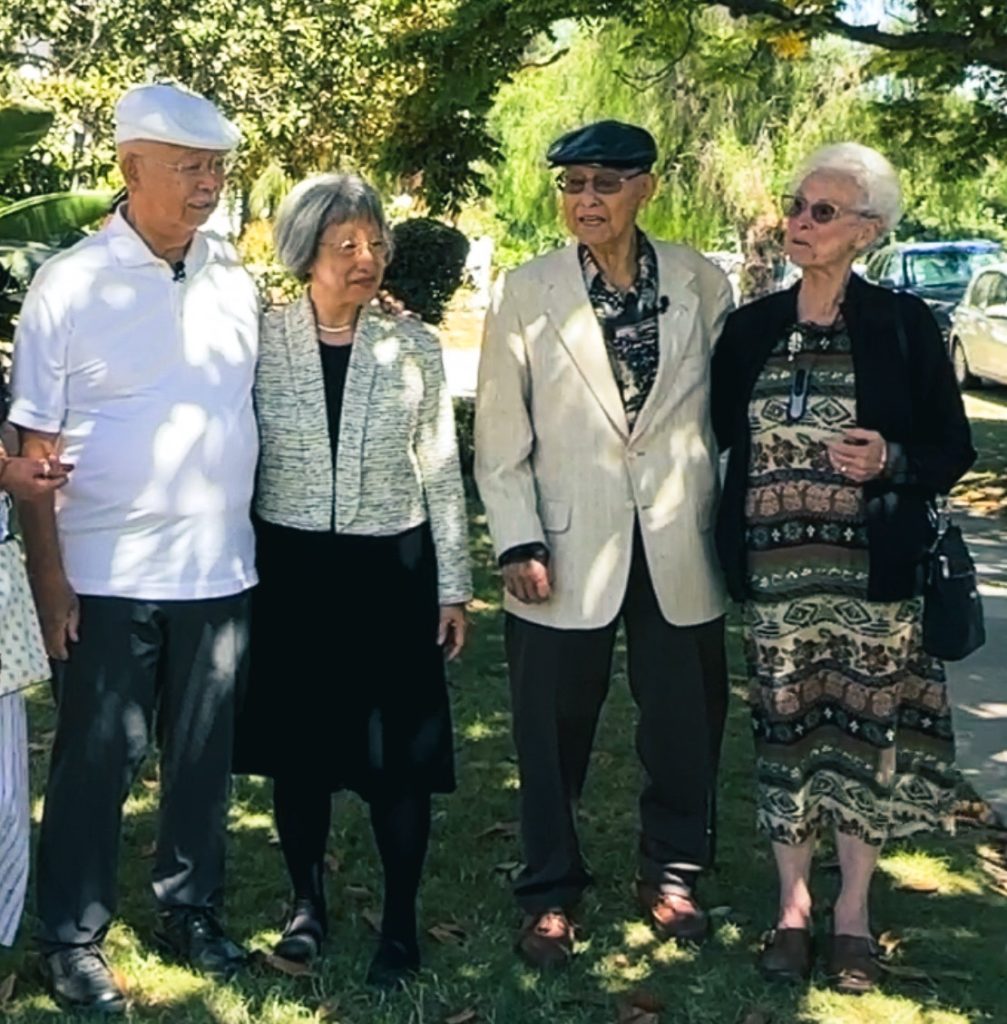
Before Monday’s ceremony at SDSU, the descendants of the Thompsons and Dongs met for the very first time in the front yard of the property on C Avenue. It marks the first Thompson-Dong interaction since 1955.
After greetings and hugs, the descendants walked through the home together and shared stories. For Kemp, who was joined by his sister, Lauren Kemp Few, it was an emotional and touching day.
“To be in the house with the Dongs and my sister…I’m speechless,” said Kemp. “In a word, just wonderful. Because this is such a beautiful story to be here … fast forward all these years, the Dongs are paying it forward.”
His sister described the encounter as “overwhelming, happy, and joyous.”
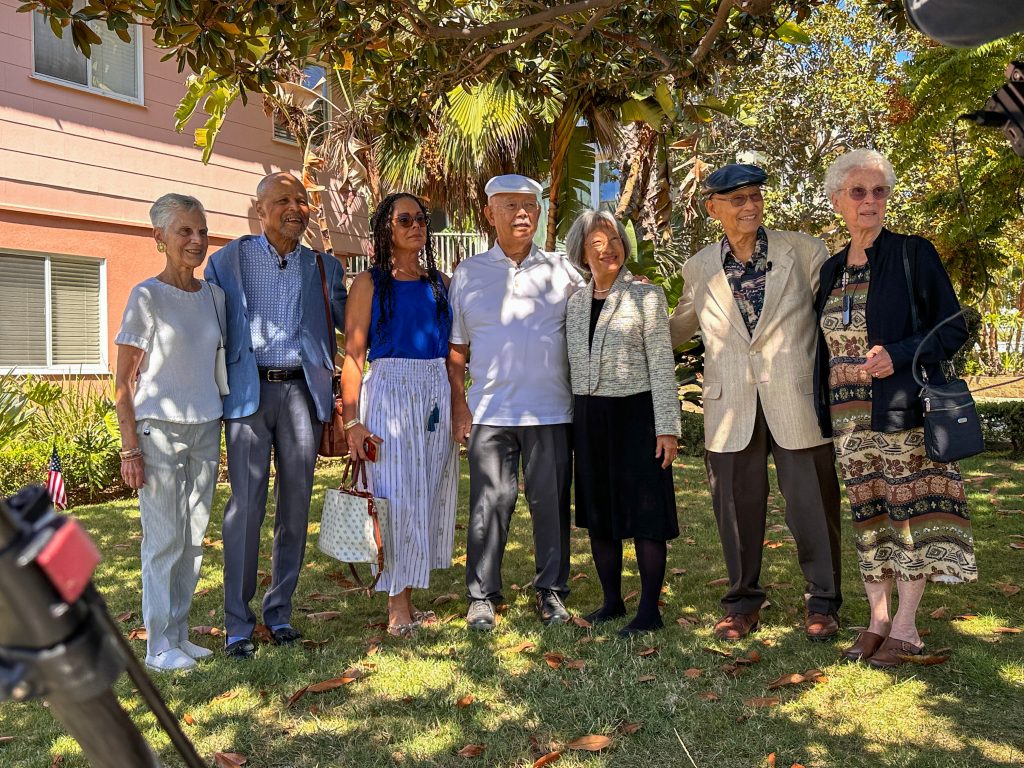
Not only had the descendants of the Thompson and Dong families never met, but the Thompsons didn’t even know the true story about how the Dongs got the house. It wasn’t until local historian Kevin Ashley unearthed records and clippings dating back 140 years that the families were connected.
“I’m just glad these old stories, that were once lost, still have power, and still have the ability to inspire,” said Ashley.
According to Ashley, the Thompsons made a practice of renting out their home to immigrant families, even using the upstairs portion of their livery stable as a boarding house for Black Americans doing seasonal work in Coronado. Often, it was their only hope for a bed in town.
Kemp isn’t surprised that Gus and Emma Thompson rented, and later sold, to the Dongs when others would not. It’s just the kind of people they were.
“It was the right thing to do,” said Kemp. “It’s no big thing.”
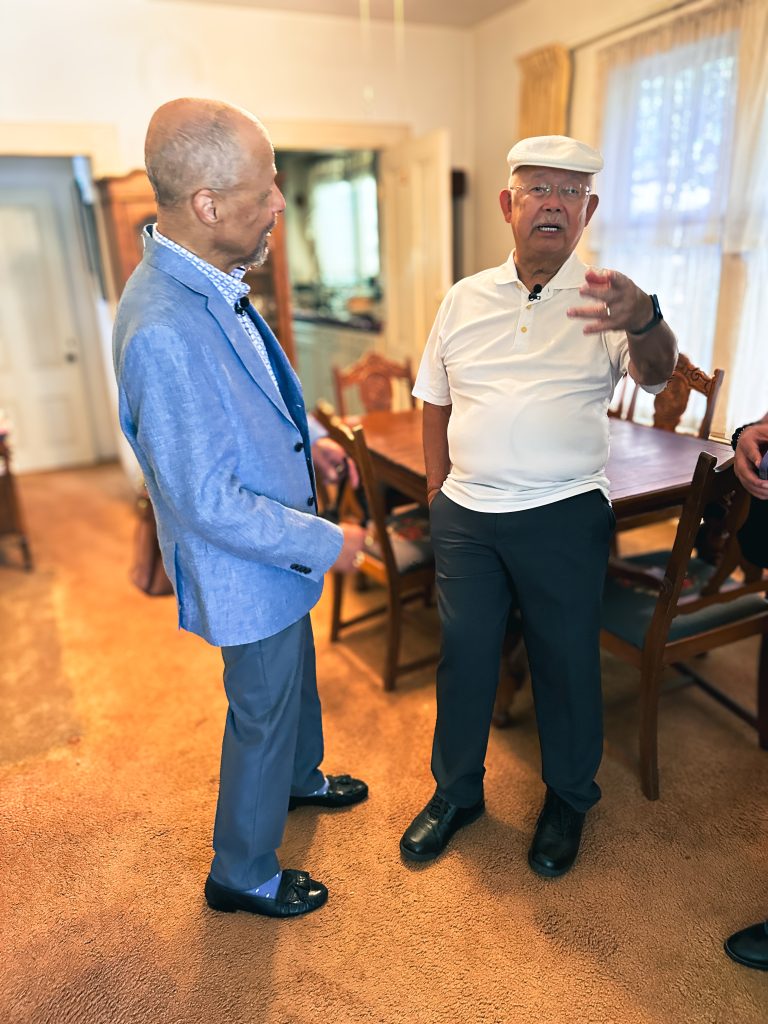
Once the Dong descendants and their spouses learned the full truth behind the Thompson family, and the role they played in lifting up the community, their decision to donate to the Black Resource Center was an easy one.
“I’m still in shock that two little properties in Coronado could pack so much history and impact,” said Ashley. “The Dongs make it sound like, of course they would do this because they had no offspring. But 99.9% of the population would probably say, ‘we’re going to use the money and buy a big yacht.'”
It’s a decision that is sure to have lasting effects on the students who will access the Gus and Emma Thompson Black Resource Center. After all, 95% of students who access the center’s programs end up graduating, according to Ashley.
Kemp says if Gus and Emma Thompson knew about the donation, they would have been “overjoyed.” And he believes that would be been delighted to see the role they played in the success of the four Dong children, all described as talented and industrious.
“Look what came of this,” said Kemp. “Look at all of these graduates!”
But most of all, Ballinger Kemp hopes the story will inspire someone else to do a good deed.
“I think the world is ready for more of the Thompson-Dong spirit,” said Kemp. “If it makes some kind of difference, the story being told, then that would be a beautiful thing.”
